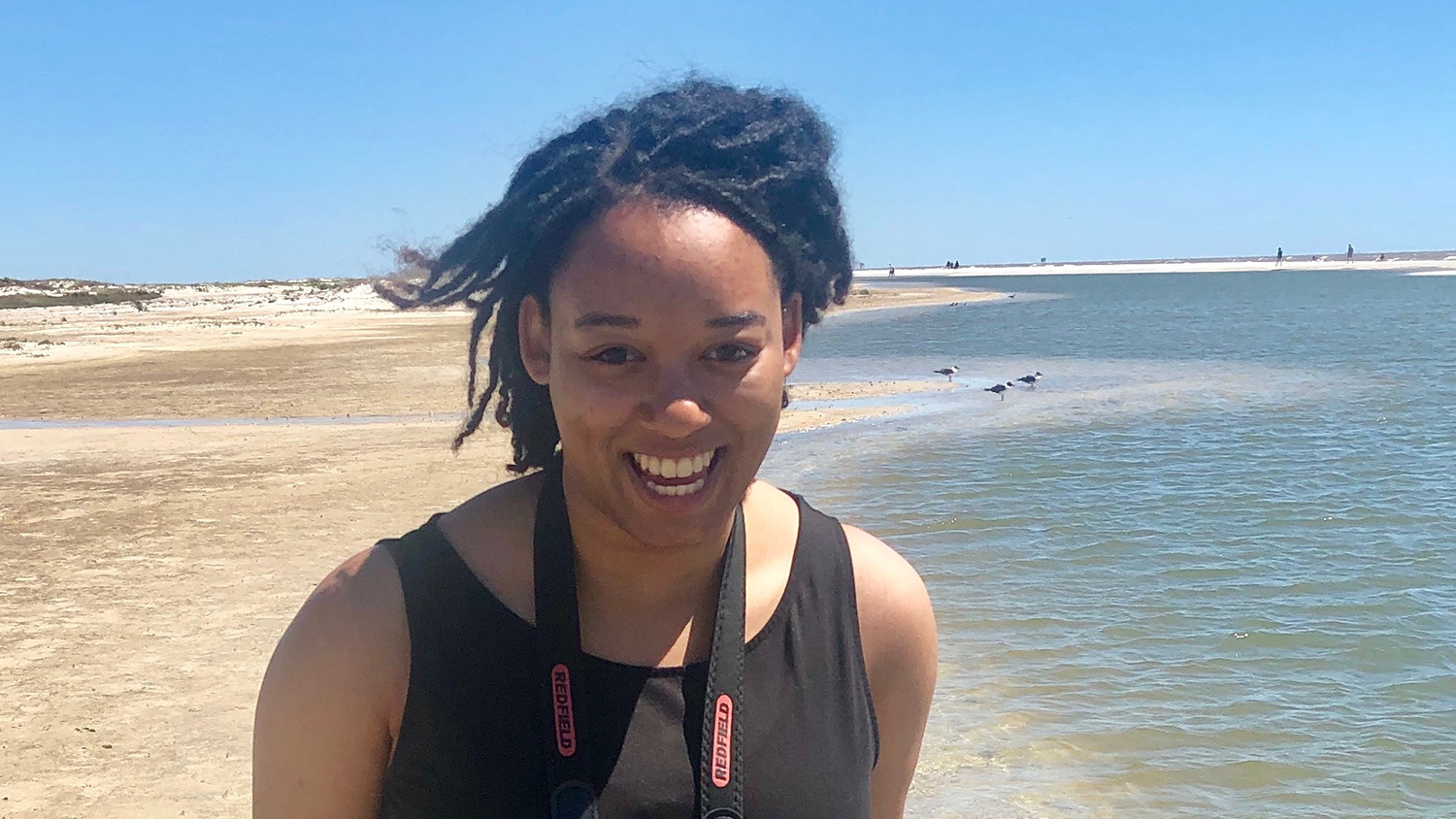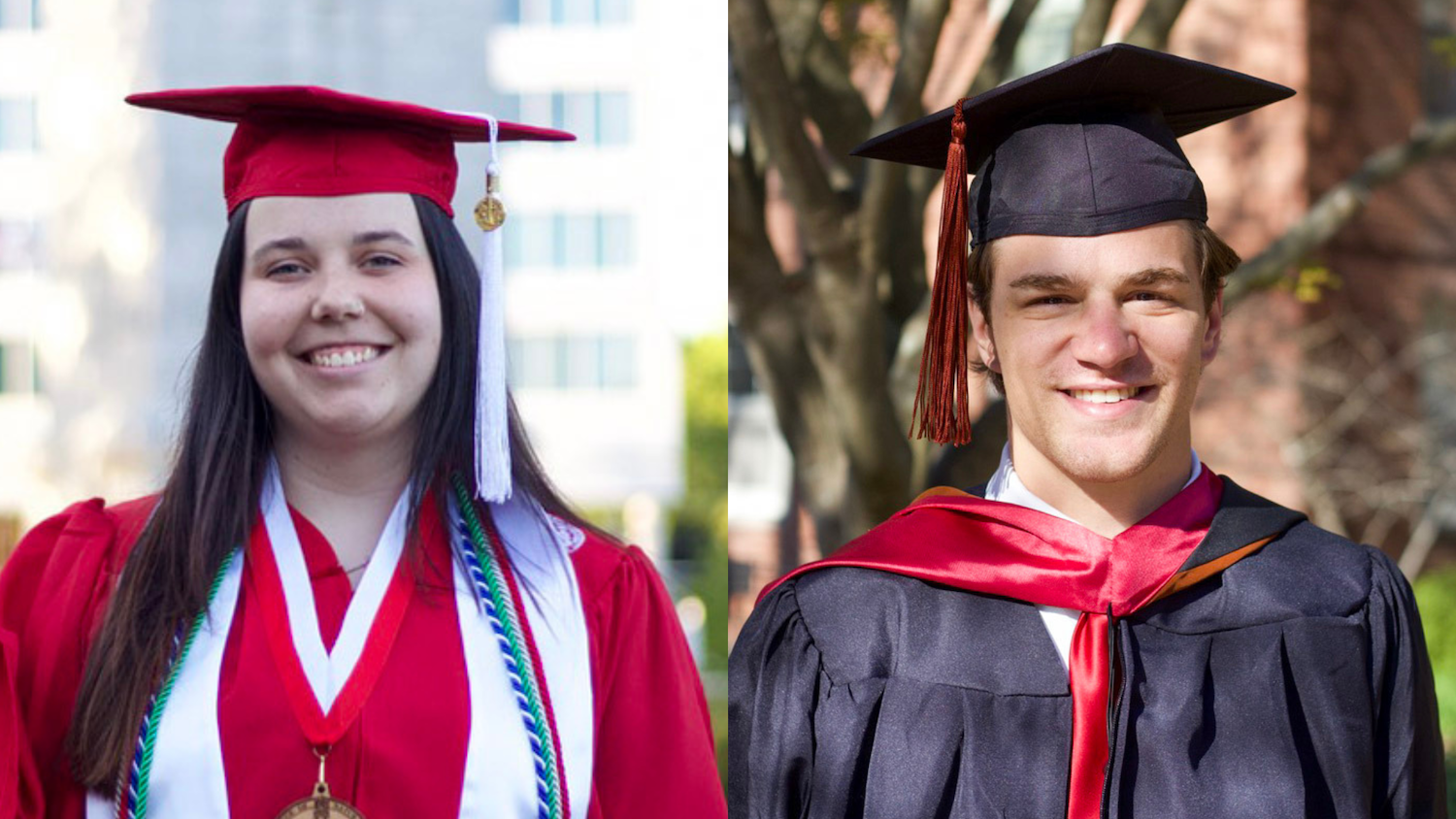Murry Burgess is a Ph.D. student in the Department of Forestry and Environmental Resources at NC State’s College of Natural Resources. Her research focuses on urban ecology and ornithology, specifically the effects of artificial light at night on barn swallow chick health and development. After she completes her degree, Burgess would like to pursue a career in academia and start her own research lab.
We recently spoke with Burgess about her experience as a Black scientist in the field of natural resources. The following Q&A is a part of a Black History Month series highlighting the outstanding contributions Black faculty, staff and students have made to the College of Natural Resources.
Can you recall some of your earliest memories of being outside?
Growing up in suburban Florida, I always loved animals. I remember playing in my backyard pretending to be “The Crocodile Hunter.” I would catch frogs, lizards and butterflies and watch all the birds fly in and out of the yard. I remember one red-tailed hawk would always come and perch on a stake in our garden – we had to keep an eye on our small dog to make sure he wasn’t carried off by it.
What has it been like as a Black, Indigenous, Person of Color (BIPOC) to study within your field and pursue your career?
As a Black woman in wildlife biology, I rarely see anyone else who looks like me. I often feel pressure to “prove” that I belong. In addition, I do my field work in a rural, predominantly white community – sometimes at night. I have to be extra careful and alert. I always take my dog and let someone know when I’m going out there and when I’ve made it home. My experiences and hearing those of others have made me acutely aware of the racism that exists in science and academia. I hope my presence and work can support change in these institutions.
What challenges have you faced in pursuing your degrees and career?
The biggest challenge for me so far has been balancing my time and effort between research, grad school and my other endeavors. I have had to launch my field research in the midst of a pandemic, while simultaneously maintaining my grades, preparing the first book in my children’s series, “Sparrow Learns Birds,” and being an environmental educator. It’s a lot, but I’m glad to be busy and so far successful.
Do you have any specific memories of experiences in your career that stick with you?
I remember my first time snorkeling in the Belize Barrier Reef during a study abroad trip. Staring out into the open ocean from the edge of the reef with a huge school of snappers circling below me cemented in my brain just how small I, as a human, am on this earth. That view emphasized to me the disproportionate impact humans have on our environment and how important it is for us to be part of the flow of life rather than subduing life and draining resources. The view also scared me and made me want to get back on the boat.
Tell us about someone who supported and encouraged you to pursue your work.
One professor I had in undergrad at Mississippi State University, Dr. Chris Ayers, inspired my love of field research and ornithology. I wouldn’t have pursued a career in ornithology if I hadn’t have taken his class. I learned many skills and techniques from him, and he always encouraged and supported me.
Why are you passionate about your field or work?
The thrill of learning and discovery is what I enjoy the most about my research. Urban ecology is a rapidly expanding yet largely unexplored niche that works to benefit both wildlife and humans. My work with birds and artificial light could lead to discoveries that impact conservation, policy, urban planning and health. I love being able to do something that could improve the well-being of life on this planet.
What advice would you give to young BIPOC professionals entering your field?
My advice is to surround yourself with people who love you and support you. At times this field will be difficult and isolating, and you’ll need those people to help you through the rough patches. I’m thankful to have a wonderful support system of friends and family cheering me on and keeping me sane.
- Categories:



